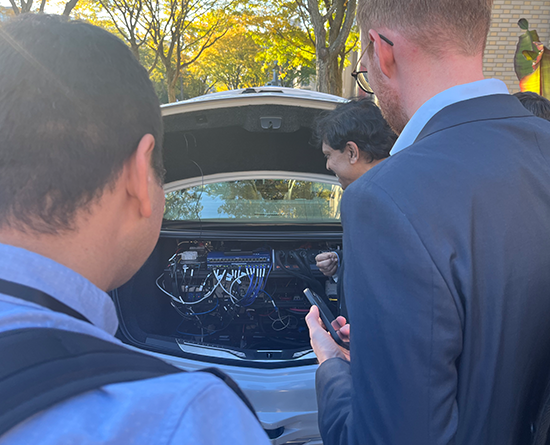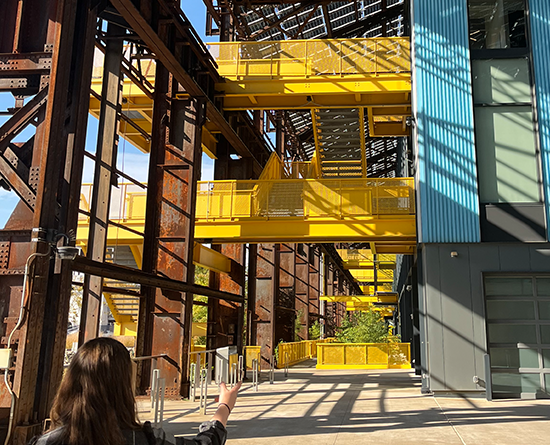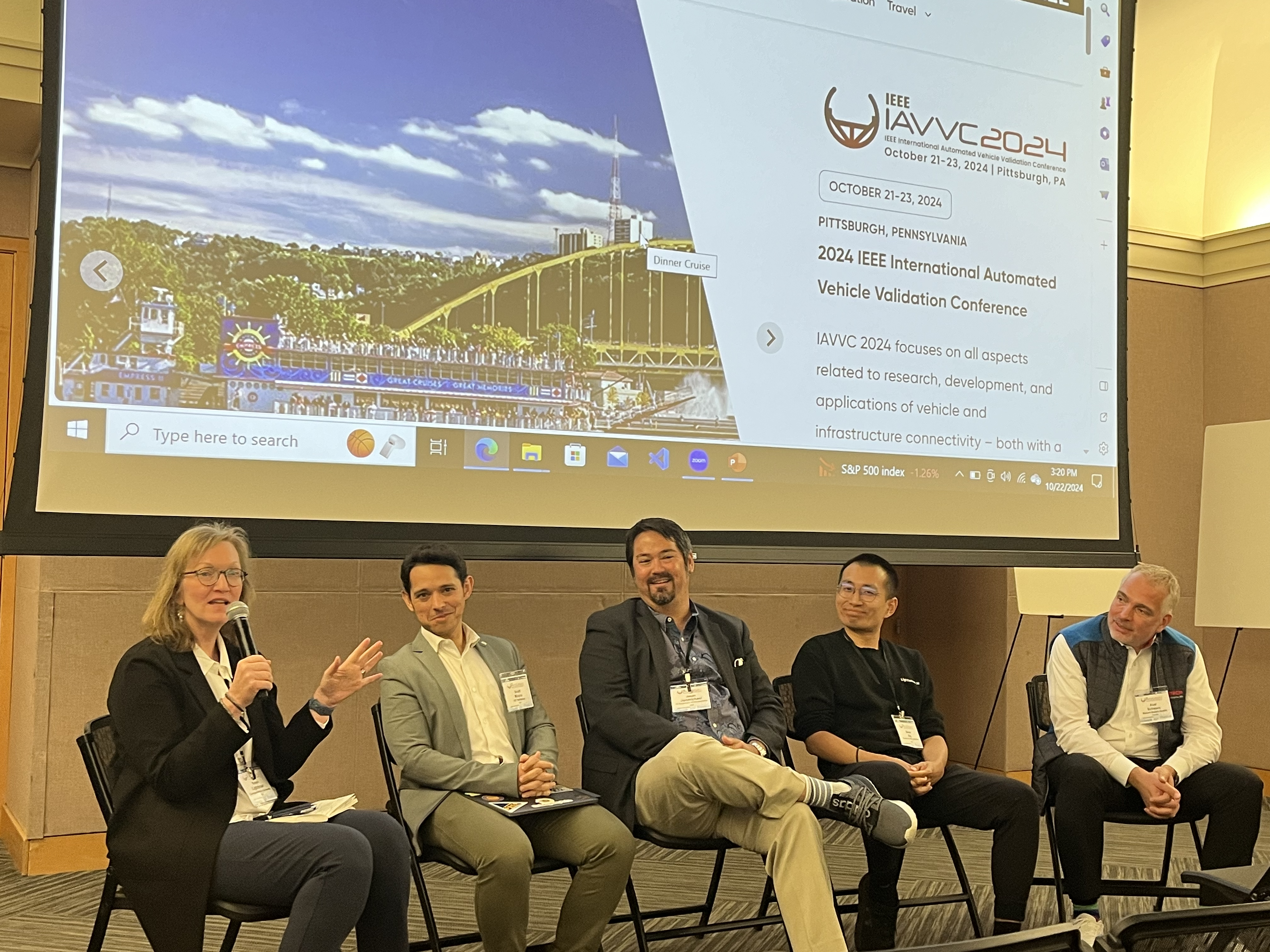Experts gather at CMU to shape the future of automated vehicles
Kaitlyn Landram
Dec 18, 2024
On October 22, 2024, the Institute for Electrical and Electronics Engineers (IEEE) held its annual International Automated Vehicle Validation Conference at Carnegie Mellon University. Experts, innovators, and thought leaders across academia, industry, and government from around the world came together to discuss the intersection of connected and automated vehicle systems with infrastructure, cyber security, regulatory frameworks, and the integration of new technologies.
More than 40,000 people in the U.S. die every year from automotive crashes. Self-driving cars which are not subject to human shortcomings—sleepiness, alcohol use, distraction—should lead to safer and more efficient roads.
“As autonomous vehicle technologies are integrated into our auto fleet, people need to know that their vehicles are safe, and at conferences like this, we examine research and share ideas that brings us closer to the vision of safe, reliable self-driving vehicles,” say Ding Zhao, director of the Safe AI Lab and associate professor of mechanical engineering at CMU.
Zhao co-chaired the event with Raj Rajkumar, director of CMU’s Safety21, a USDOT National University Transportation Center for Safety and professor of electrical and computer engineering. Rajkumar founded Ottomatika Inc., which was acquired by Delphi and ultimately spun into Motional, a company that is making driverless vehicles a safe and accessible reality.
Live demonstrations

Along with safety, which has always been at the heart of Carnegie Mellon’s transportation research, the conference’s theme on “large deployment and large models,” underscored the importance of AI, a strength of CMU’s research and education portfolio.
Participants had the opportunity to explore SafeBench, an evaluation platform that contains thousands of safety-critical driving scenarios generated by machine learning algorithms, which evaluate AVs under realistic and critical scenarios. During the demonstration users controlled a car in SafeBench, actively avoiding collisions.
Outside, Rajkumar demonstrated a connected and autonomous Cadillac CT6, which earlier this year drove congressional staff around the U.S. Department of Transportation headquarters in Washington D.C.FIRST Robotics

During the conference, FIRST Robotics Competition Team 3504 Girls of Steel of Pittsburgh, combined efforts with Team 4467 Titanium Titans of Canonsburg, to discuss FIRST’s portfolio of programs to participants. One cone-dropping robot caught the eye of members of the Department of Transportation who believe the robot could offer a safe alternative to current practices that require people to place cones around roadside construction sites. This robot, built by high school students, was created to compete in a robotics competition at The Greater Pittsburgh Regional.
“FIRST programs teach STEM skills to students who will have jobs that haven’t been created yet,” quoted Daphne Frownfelter, FIRST Regional Director in Pennsylvania. “We are thrilled to be a part of it.” “The IEEE Conference was an ideal place for participants to meet the teams.”
Starting with a Kit of Parts, FIRST® Robotics teams design, program, and build industrial-sized robots to play an action-packed game on a themed field as part of a three-team alliance. Guided by mentors and sponsors, students learn engineering and problem-solving skills as they compete for awards, create a team identity, raise funds, hone teamwork skills, and advance appreciation for STEM in their community.
Discovery workspace

Hosting the conference at Carnegie Mellon enabled participants to get a sense of the university’s historic engagement with AVs dating back to the 1980s. Today, the university is home to Safety21, a University Transportation Center that was founded on the premise that autonomous, networked, shared, and integrated transportation technologies and systems are developed and deployed with safety, equity, and sustainability in mind.
To showcase the high levels of collaboration that exists between Pittsburgh area’s universities, city and state government, and Pittsburgh’s self-driving car companies, attendees were invited to tour Mill 19, a discovery workspace where Carnegie Mellon innovators partner with industry pioneers to apply digital innovation, advanced manufacturing technology, and human intelligence to the production of the future.New perspectives
